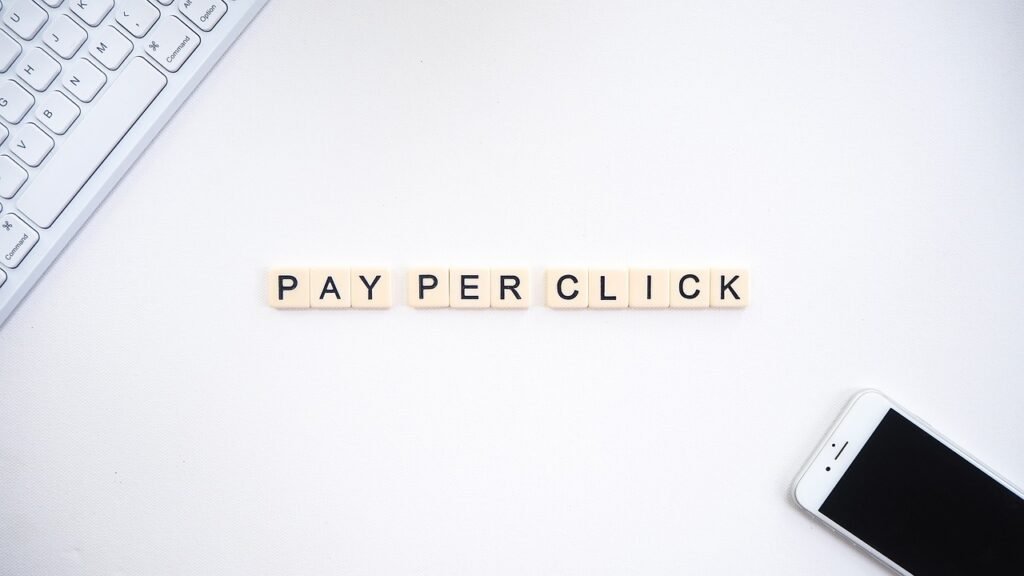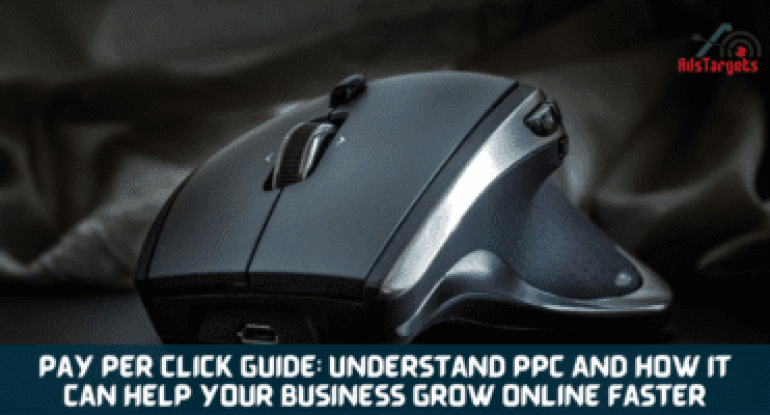Updated 15/05/2025
Billions of searches happen on Google per day, forward-thinking advertisers would not stand and watch this fertile goldmine go unexplored, to utilize this traffic on the giant search engine, businesses run PPC (Pay Per Click) ads to drive more traffic or conversions on their website where they products and service are displayed.
why do they pitch PPC? Here is the answer
In a PPC advertisement, you only pay when a user clicks on your ad.
The interface is quite simple and it’s easy to create ads today, however, creating impactful PPC ads is a skill that takes time to master.
If you are going to work in paid advertising, you need to be able to translate the data that goes along with it.
Every ad you run will have its set of unique impressions, clicks, click-through rates (CTRs), conversions, and more.
As a marketer specializing in PPC, you need to be able to efficiently evaluate these numbers and use the data to make informed decisions regarding your ads.
For instance, if one of your ads has a higher click-through rate than the other, you might be tempted to modify the ad with a lower CTR.
But if that low-CTR ad has a higher conversion rate, then you have to apply that knowledge to decide what is and isn’t working.
Learn all the tricks of paid advertising in this article.
Table of Contents
ToggleWhat is Pay Per Click?
PPC is a form of online promotion that allows businesses to bid on keywords to have their ads displayed when someone searches for those keywords.
PPC ad is a great way to get your business in front of people who are already looking for what you have to offer, and they can be very fruitful at driving traffic to your website if done correctly.
This type of advertising allows you to set a budget for your ads on a particular platform, such as Google or Facebook, and then only pay for clicks.
If employed as your key method of online marketing, PPC advertising can be exceedingly expensive, time-consuming, and ineffective.
Rather, it should be used as part of a comprehensive plan that includes excellent analytics, SEO, a social media presence, content, and video development.
How Does Pay Per Click Advertising work?

The first thing to note is that PPC ad looks different from platform to platform, as a marketing channel it covers several different ad platforms, with the most common of these being Bing Ads and Google Ads.
And within each of these platforms are different ad formats, but in general, the process follows this pattern below:
#1. Pick your campaign type based on your objective.
#2. Optimize your settings and targeting (audiences, locations, devices, schedule, etc.).
#3. Choose your budget and bidding strategy.
#4. Include your destination URL (landing page).
#5. Your ad goes into an auction match with other advertisers who are bidding on the same keywords.
#6. Build your ad.
Once your ad goes live, where and when the ad appears, and how much you pay for a click on it are all decided algorithmically based on your budget, campaign settings, bid, and the quality and relevance of your ad.
#7. The auction determines the order in which the ads are displayed.
#8. You pay when someone clicks on your ad
Since all platforms that offer PPC ads want to keep their users satisfied, they reward advertisers who create relevant, trustworthy PPC campaigns with higher ad positioning and lower costs.
So if you want to maximize your profits from Pay per clicks, you need to learn how to do it correctly.
How Do PPC ad Auctions work?

When a user performs a search online, an ad auction takes place that is used to determine factors like:
1. An ad account’s eligibility to qualify for the auction.
#2. The order in which eligible adverts will appear in the ad space on the results pages.
#3. How much a click will cost each of the advertisers whose ads are displayed?
The first influencer on the auction here is the maximum cost-per-click (CPC) that an advertiser sets in their ad account either for a specific keyword or ad group, this is the most that they are ready to pay for each click.
But it doesn’t necessarily mean that this is how much they will pay, just the maximum.
The other influencer is the Quality Score (QS), a metric that consists of several factors such as the expected click-through rate (CTR) of an ad, the relevancy of an ad to the term being searched for, and the experience of the landing page that the advert will send traffic to.
The place of an ad on the results page is determined by the Ad Rank, which can be explained in simpler terms:
Ad Rank = Quality Score x Max CPC
Google’s actual formula is a little more complicated, but to gain a general understanding, this is a smart way to look at it.
What Factor Determines How much an Advertiser Pays for a Click?
Ad Rank plays a big part in this but it isn’t the only contributing factor to cost per click (CPC). We can understand the cost that advertisers pay to appear in their position as:
Cost Per Click = Ad Rank of the advertiser below / Quality Score + $0.01
How to Do Pay Per Click with Google Ads

Conducting PPC marketing through Google Ads is extremely valuable because, as the most popular search engine, Google gets huge amounts of traffic and therefore attracts the most impressions and clicks to your ads.
How repeatedly your PPC ads appear depends on which keywords and match types you choose.
While a number of factors determine how successful your PPC ad campaign will be, you can achieve a lot by doing the following:
#1. Bid on relevant Search terms: Craft relevant PPC keyword lists, tight keyword groups, and appropriate ad text.
#2. Concentrate on landing page quality: Create optimized landing pages with compelling, relevant content, and a clear call to action customized to specific search queries.
#3. Boost your Quality Score: Quality Score is Google’s rating of the quality and relevance of your keywords, landing pages, and PPC campaigns. Advertisers with superior Quality Scores get more ad clicks at lower costs.
#4. Arrest attention: Enticing ad copy is vital; and if you’re running display or social ads, so is eye-catching ad creative.
Why Use PPC?
If you are considering PPC as a marketing method for your business, you will want to know the benefits and why you should invest your dollar here and not elsewhere.
Here are some of the most common reasons why Pay Per Click could be the right advertising platform for you:
#1. You can start receiving clicks almost immediately
Once you have set up your ad account and created an ad, these will ordinarily need to be approved by the platform, but this normally takes no more than a few hours.
Once your ads are live, so long as you qualify to appear in the auction and your bid is high enough, your ads can start appearing (and receiving clicks so long as the volume is there) very quickly.
Compared to channels such as SEO, PPC enables you to start seeing returns very quickly; and this is one of the reasons why it is so popular among marketers.
#2. PPC can easily be gauged and tracked.
One of PPC’s key benefits over traditional ad channels is the ability to easily measure and track ad returns from the platform.
Most popular platforms, like Google Ads and Bing Ads, enable you to track conversions, including order or lead values.
They also allow you to see, at a granular level, the ROI of not just the overall account but specific ad groups and keywords.
This means that you can use insights to effectively refine the efficiency and performance of a campaign over time to improve the ROI of the channel.
#3. You are in full control of your ad spending and When your ads should show
Need to temporarily pause ads during a busy period? Want to only run advertising when you need to generate fresh leads?
PPC is the ideal way to do this, as you are in complete control of when your ads run (including the time of day and day of the week) and you can simply turn ads on and off as you wish; although a strong-performing campaign is always suggested to be used to drive wider brand growth and not be used as a stop-start tactic.
You have also got total control over how much you spend and how much you pay per click, in comparison to other platforms that don’t give you this same level of ability to manage a channel cost and budget so frictionlessly.
#4. You can target your customers flawlessly.
Unlike traditional ads, PPC enables you to target your exact customer based on the data available to you, even enabling you to adjust bids based on devices used, the time of day, and the location.
If you know your customer and how they search, you can leverage these insights to reduce wasted ad spending by shooting your ads directly at them.
#5. There are multiple ad formats at your disposal.
Do you run an eCommerce store? You can use shopping ads to show your products right on the SERPs in a strategic position.
Want to convert cart abandoners into conversions? Use display remarketing to serve an offer to motivate the desired action.
PPC encompasses a whole range of various ad formats, and these can be leveraged to drive success for specific businesses.
The Key Platforms for PPC
#1. Google Ads
Google Ads is the ad platform that enables you to run search and shopping ads on Google, video ads on YouTube, Gmail ads, and display ads on the Google Display Network.
It is by far the most popular PPC platform and provides a wealth of opportunities for pretty much any business to drive success from the platform.
#2. Microsoft Advertising.
Bing Ads, also known as Microsoft ads, in a similar way to Google Ads allow you to run ads on Bing, as well as on Yahoo and AOL.
From a management standpoint, the two platforms are very similar; the key difference is the market size and potential reach.
According to StatCounter, as of June 2022, Google’s worldwide search engine market share stood at 91.88%, with Bing following at 3.19%, Yandex at 1.52%, Yahoo at 1.33%, Baidu at 0.76%, and DuckDuckGo hung at 0.64%.
That said, Bing Ads can still pull traffic and conversions, and the ROI is often cited as being better than Google Ads, even though at a lower volume.
Managing your PPC campaigns
Once you have created your new campaigns, you will need to stay close and manage them regularly to make sure they continue to be effective.
Regular account management is one of the best predictors of account success. You should be constantly analyzing the performance of your account and making the following adjustments to optimize your campaigns:
#1. Constantly add PPC Keywords: Expand the reach of your PPC campaigns by using keywords that are relevant to your business.
#2. Include negative keywords: Include non-converting terms as negative keywords to boost campaign relevancy and reduce wasted spend.
#3. Revisit costly PPC keywords: Review expensive, under-performing terms and shut them off if necessary.
#4. Optimize landing pages: Refine the content and CTAs of your landing pages to agree with individual search queries to boost conversion rates.
#5. Split ad groups: Increase click-through rate and Quality Score by splitting up your ad groups into smaller relevant ad groups, which help you create more customized ad text and landing pages.
Conclusion
PPC is a form of advertising that uses search engine results pages (SERPs) as the main platform.
Ads are placed on specific keywords, and when a person clicks on one of them, your ad will be served up to them.
Unlike traditional banner ads, which simply appear next to the content on sites, PPC ads are tailored to capture user attention and convert leads into customers.
Pay Per Click campaigns can be very successful if they are executed properly by using effective targeting strategies and paid media channels like Google Adwords and Bing ads When planning your PPC campaign.
It’s crucial to consider how much money you want as well as how many hours you plan on working each day on the project.
This and more have been well covered in this article, you wish to adopt it as your guide to pay-per-click marketing.








